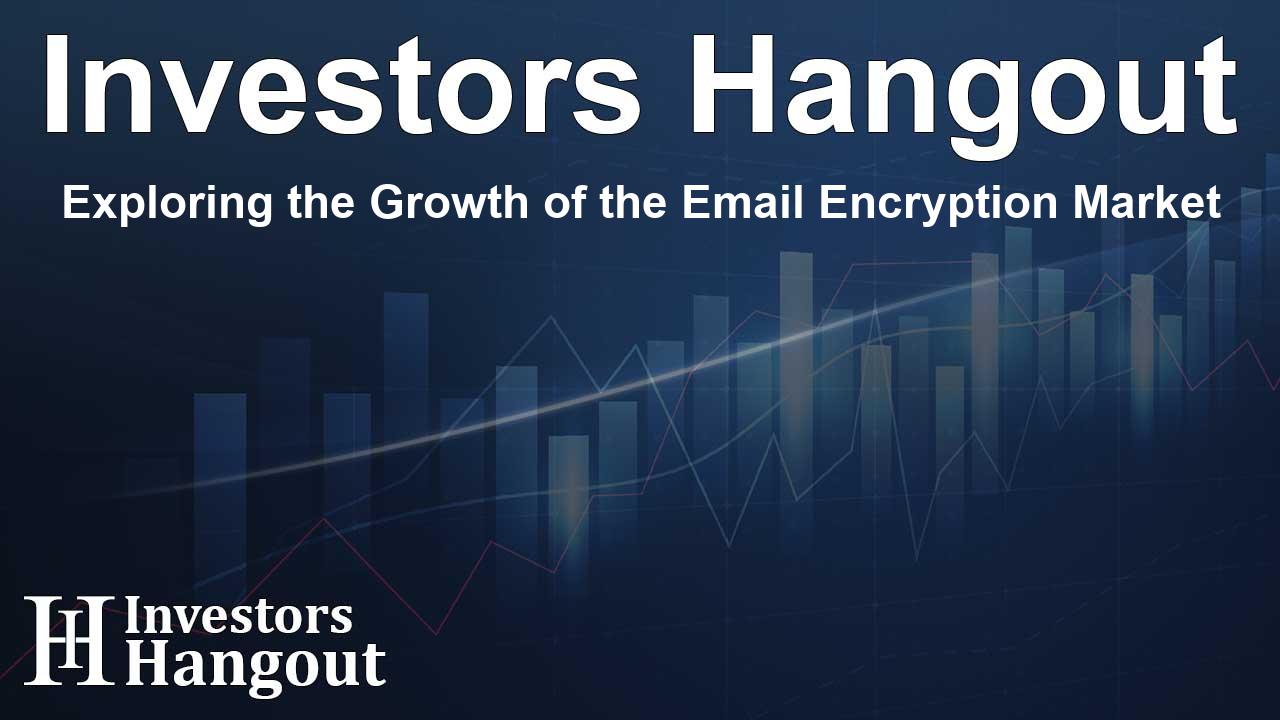Exploring the Growth of the Email Encryption Market

The Growth of the Email Encryption Market
The Email Encryption Market is on a significant upward trajectory, with forecasts suggesting it will reach an impressive USD 23.33 billion by 2030. This growth marks a substantial leap from the estimated USD 9.30 billion in 2025, showcasing a robust compound annual growth rate (CAGR) of 20.2% during the period from 2025 to 2030. Such figures underline the increasing importance of security in digital communication as cyber threats continue to escalate.
Evolution and Rising Demand for Email Encryption
As cyberattacks become more sophisticated—evident in the rise of Business Email Compromise (BEC) scams and targeted phishing attempts—the demand for reliable email encryption solutions has surged. Organizations across various sectors, from government to healthcare and finance, are recognizing the urgent need to protect sensitive data that is communicated via email. This trend reflects a broader movement towards enhancing cybersecurity measures in light of the growing digitization of vital services.
Report Overview
The report details several key metrics that outline the landscape of the Email Encryption Market:
- Market Size Availability: The data spans from 2019 to 2030, providing a thorough analysis across the years.
- Base Year: The report uses 2024 as its base year for analysis.
- Forecast Period: The projections focus on developments from 2025 to 2030.
- Segments Covered: The analysis includes various offerings, types, organization sizes, and deployment modes.
- Geographies Covered: It offers insights into regions including North America, Europe, Asia Pacific, the Middle East & Africa, and Latin America.
Sector Growth: The Healthcare Industry
The healthcare sector is poised to exhibit the highest growth rate within the Email Encryption Market during the forecast period. This surge is primarily driven by stringent regulatory requirements, such as those set forth by the Health Insurance Portability and Accountability Act (HIPAA) in the United States. Organizations must safeguard sensitive patient data, especially in transit via email, making advanced encryption technologies crucial. As the threat landscape intensifies, healthcare providers are allocating more resources to enhance their email security, thereby minimizing the risk of data breaches and legal repercussions.
Deployment Modes and Market Trends
A closer examination of deployment modes reveals that on-premises solutions will likely dominate the market during the forecast timeline. Organizations that handle highly sensitive data, such as government agencies and large corporations, often prefer this deployment mode. On-premises setups offer better control over data security, allowing entities to manage encryption keys and maintain compliance with data protection laws effectively.
Regional Insights
The Asia Pacific region is expected to witness the fastest growth in the Email Encryption Market. Rapid digital transformation accompanied by rising cyber threats has created a pressing need for enhanced security protocols. Countries in this region, including Japan, Singapore, India, and Australia, have observed substantial increases in advanced email attacks, leading to an urgent demand for email encryption solutions that can counter these threats effectively. The heightened focus on regulatory compliance and digital growth further accelerates this market's expansion in APAC.
Key Players in the Email Encryption Landscape
Several prominent companies are actively shaping the Email Encryption Market, including:
- Fortinet
- BAE Systems
- Mimecast
- Cisco Systems
- Proofpoint
- Zoho
- Broadcom
- OpenText
- Barracuda Networks
- Thales
- HPE
- Entrust
- Fortra
- Sophos
- Trend Micro
- Seclore
- Egress Software
- Echoworx
- Lux Scientiae
- NeoCertified
- SSH Communications
- Retarus
- Paubox
- PreVeil
- Sealit Technologies
- SendSafely
- Zivver
These key players are at the forefront of innovation, offering a range of solutions to meet the evolving needs of organizations looking to secure their email communications.
Frequently Asked Questions
1. What is the Email Encryption Market projected growth?
The Email Encryption Market is expected to reach USD 23.33 billion by 2030, growing at a CAGR of 20.2% from 2025.
2. Why is there a rise in demand for email encryption?
Increased cyber threats and regulatory requirements are driving the demand for secure email communication, leading to greater investment in email encryption solutions.
3. Which sector is leading the adoption of email encryption?
The healthcare sector is projected to register the highest CAGR due to stringent data protection regulations.
4. What deployment mode is most preferred in the Email Encryption Market?
On-premises deployment is favored by organizations due to its control over data security and compliance requirements.
5. Which region is expected to experience the highest growth in this market?
The Asia Pacific region is witnessing rapid growth due to increased digital transformation and cyber threats.
About The Author
Contact Addison Perry privately here. Or send an email with ATTN: Addison Perry as the subject to contact@investorshangout.com.
About Investors Hangout
Investors Hangout is a leading online stock forum for financial discussion and learning, offering a wide range of free tools and resources. It draws in traders of all levels, who exchange market knowledge, investigate trading tactics, and keep an eye on industry developments in real time. Featuring financial articles, stock message boards, quotes, charts, company profiles, and live news updates. Through cooperative learning and a wealth of informational resources, it helps users from novices creating their first portfolios to experts honing their techniques. Join Investors Hangout today: https://investorshangout.com/
The content of this article is based on factual, publicly available information and does not represent legal, financial, or investment advice. Investors Hangout does not offer financial advice, and the author is not a licensed financial advisor. Consult a qualified advisor before making any financial or investment decisions based on this article. This article should not be considered advice to purchase, sell, or hold any securities or other investments. If any of the material provided here is inaccurate, please contact us for corrections.
